Graham Reid | | 19 min read
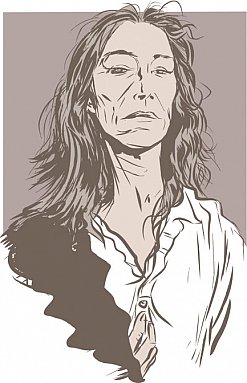
The first phone call to Patti Smith at home in New York catches her weary and breathless. She's apologetic but disarmingly courteous. It's been quite a few years since I've been called "sir" and never, that I recall, by someone from rock'n'roll culture. But it is also an inconvenient time to talk she says. She's been working all day, it's now 5.30 pm and she wants to do family things. She invites me to call back later in the night, which I do -- only to have the phone ring off the wall.
Over the following few days arrangements are made to call again, but then she leaves New York to embark on tour with Bob Dylan*. But messages keep coming back from mid-level and highly placed people between Patti and me that she's still happy to talk.
This is the kind of information you greet with caution if not outright suspicion. Patti Smith has no need to do interviews, her career is secure and she has no current album to talk up. And over the past few years since her return to public life she has done very little in the way of press.
Not only does she not need to bother, but there is always the fact her life had been well canvassed anyway.
The story of this aspiring punk poet from New Jersey who discovered, and to some extent created, herself in New York in the mid 70s as a poet and rock singer equally inspired by Verlaine (both of them, poet Paul and Television lead guitarist Tom) has been the subject of many biographies and interviews.
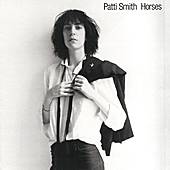 Her classic debut album Horses and relationship with photographer Robert Mapplethorpe -- who shot the cover photo -- is as well known as the recent tragedies of her life: after a series of extraordinary albums she abandoned public life in 1979 and moved to Detroit where she married Fred "Sonic" Smith, formerly of MC5, raised two children and only sporadically appeared as a poet and performer.
Her classic debut album Horses and relationship with photographer Robert Mapplethorpe -- who shot the cover photo -- is as well known as the recent tragedies of her life: after a series of extraordinary albums she abandoned public life in 1979 and moved to Detroit where she married Fred "Sonic" Smith, formerly of MC5, raised two children and only sporadically appeared as a poet and performer.
Her first album in eight years, Gone Again, released in 1996 however was harrowing. It largely dealt with the deaths around her of Mapplethorpe, pianist Richard Sohl, Kurt Cobain (in the song About A Boy) and most significantly, her 44 year old husband who died of heart failure in November of '94, a month before her younger brother also passed away.
Encouraged by Bob Dylan, Smith cautiously took to the road again and rediscovered herself.
Her most recent album Peace and Noise marked another departure. It was a collaborative effort with guitarist and poet Oliver Ray and addressed social issues such as Aids, the Vietnam War (in Memento Mori) and the hardships endured by Dust Bowl refugees in the Depression.
Since then she has toured with more regularity, appeared at music awards to be hailed as a spokesperson for her generation, and increasingly stresses social responsibility in her lyrics and public statements.
But expecting her to make herself available for a phone interview is perhaps too much to hope for -- yet surprisingly she does exactly that when she arrives in Melbourne for the start of her Australian-New Zealand concert tour with Dylan.
Speaking in flat, door-creak monotone, Smith is friendly and thoughtful, and appears in no hurry to finish the discussion until a voice from the same room suggests she has something else to do.
Initially I remind her that I called a week or so before and she had just come in from work ("Oh yeah, I remember you!") so a fair starting point would be to ask just what that "work" was.
"I think I was probably packing to leave home for a month, to be where we are now," she says with a light laugh, not the last of this conversation, but a rare one nonetheless. 
Are you a small mobile unit?
Oh yeah, I'm a very light packer. No matter for how far or how long, I pack light.
Are your children with you on this tour?
One is, my daughter is here.
Is it school holidays in the States now?
Yes.
Do you factor that in? I know being a parent is the prime job.
It's the prime job. I really plan based on three things according to my responsibilities, according to where I feel we should visit and return to because we've had tremendous support, and places I think it's important to go to communicate certain thing or where I've always wanted to visit.
This particular tour we agreed on because we were all very happy to work with Bob Dylan, that was one consideration. But the other was I've long wanted to visit New Zealand. New Zealand was added onto the tour, that was significant for me. 
In what way? Do you know something of this place? Or have you just heard the rumours?
What I know is it's somewhat pastoral, that it is environmentally conscious and has a reputation of being clean. And the sea. I love the sea. It's just one of those places I've seen on National Geographic and it's always extremely wild and pastoral and quite beautiful.
And people I've talked to, and journalists over the phone, have been very respectful and had some dignity.
You said an interesting thing there. If that's what we can give you, you also said there were places to go to communicate certain things. I'm interested to know what those things might be for you at this point.
What I'm really concerned with right now, and have been thinking about the most, is how I think we need to try to strike some kind of global communication. I think the things happening on the planet ... it seems that on government levels things are just getting out of control and I think we are entering an era where it's very, very important for people to reclaim their voice and reclaim their strength in numbers.
That was a very prevalent thing in the 60s and many things happened in the late 60s which made people feel disillusioned or they felt like they had worked hard enough or whatever. I think people now are confused and don't know exactly what they can do or should do. It was very easy in the United States, we had something very obvious to fight for, the rage against the Vietnam War.
But I think right now there are more important issues because the issues we are facing now are getting more and more global. I'm think of environmental issues, nuclear issues, terrorist issues. They are global issues, not nationalistic and because they are global issues I feel it's very important we start networking using the technology we have whether it's through art, music or pure technology and try to start communicating with each other on a grass roots level.
It sounds very idealistic, but changes are not made until people start working towards things en masse -- and I think people can be motivated again to start coming together and working together but I think we have to remind people that they do have a voice and each person's voice is important. That's something that's been quite on my mind.
It seems to me however that if you look back at the 60s for that model,there were specific targets then which were in retrospect fairly easy to identify. You knew what the issue was. But when you start talking about the global situation people cannot get a handle on the scale of that. 
Yeah, but if people start on just one simple issue, something as obvious as clean water for instance. Environmental issues or nuclear disarmament. Things are not quite as abstract as they seem and as we keep advancing into the next century things that are local -- when you have such strong environmental problems -- people are just going to have to wake up.
There are intense environmental problems in the Third World, but in the United States we are also starting to see terrible debris washing up on our shores and there are more and more strange viruses, microbes in the water ... These things are ones which we have to start addressing. Part of it is we have to reassess how much materialism we have in these times, address where the waste is going, and I think it's going to be the number one issue in the new century. We've been trying to work for the environment but we can't get people together because it takes sacrifice and people don't really want to hear about it. But if we don't we are going to have some disasters.
I think we are starting to see them already. For want of a better term, those are socio-political issues. Do you think it's in the contract of art and artists to be addressing those things.
I think it's in the human contract. As an artist I don't feel compelled, but if it does enter the work that's fine. But I think artists are artists, somebody like Bob Dylan was singing A Hard Rain's Gonna Fall and things in the mid-60s trying to warn people about the environmental situation and the bomb and all kinds of things. It does permeate an artist's work, we're all human beings, and I'm certainly no politician and I'm not politically articulate -- but I am a human being and a mother and I have concerns just like any other citizen -- and I think these concerns can no longer be just governmental concerns. We as citizens have to get more aggressive, and I don't really know exactly at this point how we do that, but I do know at this point we can start coming together and having some kind of dialogue, whether it's through letters, the internet or meetings and find some way to exert pressure and to see what we can do. Maybe it's a simple thing, each person recycling or having less waste.
It's interesting because what I hear you saying is that it's in the contract of art and performers to reflect whatever, whether that be personal issues which might well be political issues. The conundrum you face as an artist, I suspect, is that while you put that into the world, you are working in an idiom which is entertainment for most people.
I think all forums are forms of communication. A comedian can make people laugh, but he can also make people think, so I think there's a multitude of ways you can communicate with people. Certainly with my band one of the things we try to do is incite people, excite them, have fun, also just give them a human slice of life. We're not a perfect band, nor do we try to be. We are a human band, we improvise, we try to communicate with people from the stage and hopefully inspire people to think about things as well as have a good time.
Because rock'n'roll, as well as being a possible format for dialogue or thought, is also a way for people to let off steam. It's important. People work hard, have a lot of frustrations and sometimes a feverish exciting night gives people a chance to get some of their energy out, perhaps some of their unfocussed energy they can focus it and let it out in a night of rock'n'roll.
But it's also a possible place for us to share ideas, both spiritually and politically.
I read an interview with you a few years ago where you said you didn't have the drive to perform much any more. That may well have been a function of your mood at the time, but do you have that mood now? 
Far much more than I did then. At that point I was still regrouping and gathering my strength and I had a lot of things to consider. I was also just emotionally and physically rebuilding my strength. I was still somewhat depleted by events in my life, but I feel a lot healthier now, and a lot tougher and I also feel I am motivated more at this point by a sense of mission which is really important to me. That's always been important, whether its fighting the radio format or whatever it is. Right now motivating people toward thinking about planetary concerns is an important mission and worth going out and performing and talking to journalists about -- because I'm really not motivated by self-marketing.
I already have a fine reputation of which I'm really proud, people treat me with respect and so there isn't anything I want for in terms of media.
For me media is a chance to exchange ideas and so I'm not really motivated by a desire for self-promotion or fame, which is a big motivating factor for people sometimes. I want to see what we can do as people, that's my motivation.
I've always found it interesting that the interview is a forum in which you can put other ideas out there into the world yet I've also found -- with all due respect to people in your rock'n'roll idiom -- many don't see that. They most often see it as an opportunity for self-aggrandisement or promote the album. That's fine and I have no problem with that, but it can be so much more and a vehicle for other ideas.
I've always thought that but I also do know it's frustrating because sometimes you do spend a lot of time communicating certain ideas but those ideas are never put out because a lot of times journalists are only looking for a certain thing, they want a little gossip, or a little fun, or a flashy picture and that's all they want. But for me media is still an extremely important thing which should be used wisely. The chance to get a column in a newspaper shouldn't be wasted on mere gossip, or some type of self-promotion. It should be used to try to convey something important or something inspiring. Certainly we're seeing such a misuse. And such an imbalance in the use of media these days, look at my own country.
With all of the things happening in the world right now, all the things which should be addressed, all the people struggling, famine and flooding and border wars and terrorism, the media is spending most of its time on a very unfortunate scandal and it's really an inappropriate balance of media use. The planet is in such turmoil right now, what we need to do is find ways to pull together and communicate, hopefully to try to get people in a more positive, inspired state of mind instead of making them feel demoralised and embarrassed.
I just feel we have to keep fighting this.
Are you optimistic? I'm talking to you as a mother now. I'm a father, we look at the world our children are going to inherit and we are to some extent responsible for some of it -- are you optimistic?
I'm optimistic in terms that I believe essentially in the goodness of human nature. And I believe in essentially the charitable aspects of mankind. I'm dismayed at the way we use our powers, the way we choose not to communicate ... but I always believe we can change things. I'm not optimistic about the way things are, but that we can produce change if we are willing to work for it. I refuse to give that up, I refuse to be disheartened or beaten down.
I'm just one of those types of people, I can be knocked down, but I can keep getting up.
Also, being a mother I'd want to be nothing but optimistic. I'd want to feel there's hope, or something good for the future. But I will say I have a 16 year old son who is much more pessimistic than I. He looks at the state of the world and he just thinks things seem hopeless. So I think it's very important we do what we can to help our children not feel that way.
Your chosen vehicles have largely been rock'n'roll and poetry. I won't ask you about rock'n'roll because that seems to various to encapsulate readily, but it seems to me that spoken word has now become the acceptable substitute for what I would call poetry. The rant on stage rather the refinement of lyric. That seems a diminishing of the role of the poet in society.
I agree with that. except that true poets are a rare breed and have always been a rare breed. Poets are extremely special and there have always been very few true poets. Again I think that's an individual responsibility and calling by God or whatever. I always believe in the birth and rebirth of the individual and I think we will always see the true poet. I think however that stylistically now spoken word is a format for young people to communicate ideas in the rap form or whatever they call it.
But poets are poets, just the same as painters ... This isn't a period right now of the true fine artist, the great painters or sculptors. But I don't think sculpting, painting or poetry is dead. The cream will rise. When another great poet or sculptor comes along we'll know it.
But with respect, do you think that might not just be a function of our age. We say it's not happening now but maybe we are just too far removed from it. It makes sense that I at my age would acclaim people like Bob Dylan, yourself, Ginsberg and Bill Burroughs because they spoke to me. But I'd also have to concede I'm not close enough to hear what the 23-year olds are hearing and that their poets may be unknown to me in much the same way that in say 1965 Burroughs was pretty much unknown to most people.
I think time reveals its artists and prophets. We'll just have to see.
I don't think about it so much because I am doing my own work and am surrounded with people doing their own work, so I ... I guess that's all I have to say about that. (Laughs)
What specifically is your work right now? Writing, music?
I'm always writing but after we finish this tour we are going back to do an album, maybe a double album, with the same group of people of the same band that created Peace and Noise.
Oliver Ray and I wrote most of the songs on Peace and Noise and we're still continuing to do a lot of writing and have a lot of new songs and ideas. I am very excited about the next record which I think will contain quite a bit of poetry as well as songs. I think it's going to be very interesting work. 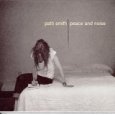
It usually falls to people outside your orbit -- people like me I suspect -- to say Gone Again was your cathartic album and perhaps necessary. And that Peace and Noise, to resort an awkward taxonomic device, was a socio-political and Americana ...
I would say the next album would be ... Peace and Noise was opening up an area and this next one will be even more open. Peace and Noise was still a classic album in terms of the albums I've done, it had a certain amount of songs, some poetry and improvisation. I think the next work will continue in that flow but be even more open with more poetry and experimentation. I'm really looking forward to that.
Do you see changes in your poetry as opposed to how you were constructing and writing 15 to 20 years ago? You refine in a different way or the input from others makes you look at things a different way?
Refining in as much as the way we evolve. I would hope some of it is more articulate or evolved. Some of it was arrived at in a similar way. Memento Mori was completely improvised in the studio, much like Birdland or Radio Ethiopia. So that pure improvisation is still part of the way I like to work and this band is an excellent improvisational band, and I feel lyrically Peace and Noise seemed a little closer to the realm of poetry than song lyrics because I was collaborating with a poet [Oliver Ray] and felt that even more I had a joyful pressure to make certain my lyrics were strong. But I'm feeling just in general pretty articulate at the moment.
People often mistake improvisation for making it up as you go along. I've always assumed it means you have a huge body of knowledge and considered thought upon which you draw. You pull from a deep well.
That's excellent, it's a combination of the two. What you just said is exactly true, for instance Memento Mori, I had no idea what the storyline was going to be. We had some basic chords and a structure and I just took off. But I did draw from everything, the years of experience and things I knew about but I didn't have it mapped out in my mind what I was going to.
Sometimes I do make up nightly at least one song, the lyrics are just there that night and I never repeat them, but they are also drawn from years of knowledge and experience. But they are made up on the spot.
The little I've read about Bob Dylan is that he will throw chord changes to a band just before he goes on and improvise to a large measure. Are you saying that when you go on even now you will have a blank canvas at some point?
At least two songs a night are entirely blank canvases. We have a song, like About A Boy which has a very classic beginning and then opens up into a blank canvas and that's both lyrically and musically. There's a lot of risk in that because when you leap into the blank canvas you're not always going to have a good painting or a masterpiece result. Sometimes it even fails, but that one even attempts that process is important.
The heroic failure rather the failure to try?
Exactly -- and that is part of our band's process. 
I know when you were starting to resume your public life Bob Dylan was a crucial figure in that he invited you to go back out. Is that correct?
Yeah.
This is a difficult question to articulate, but what did that mean to you? Here's a man offering a great deal of faith in your abilities, to go back out in that context must have been an extraordinary experience.
Yeah, it was one of the deciding factors which got me back performing because I had such respect for him and he was certainly a huge influence on my work. We did talk privately for a few moments and he did encourage me to come back and I did treasure that and it did motivate me quite a bit.
You said you negotiate tours around those things that we call our life, but do you tour much these days?
We play more locally in areas where I don't have to go away too often or in the summer when everyone can go. I don't tour as much as I used to, but nor do I desire to.

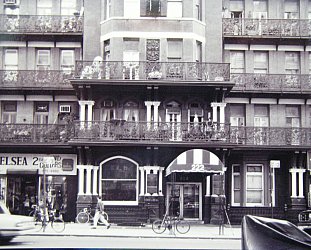
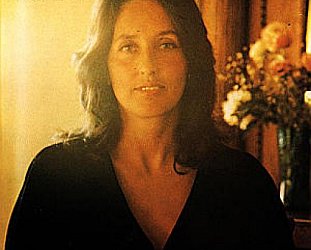
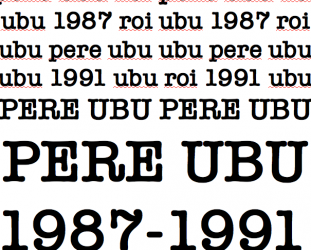
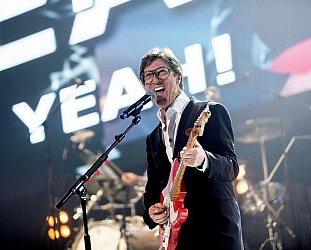
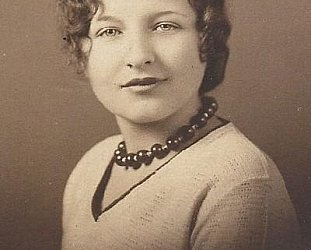
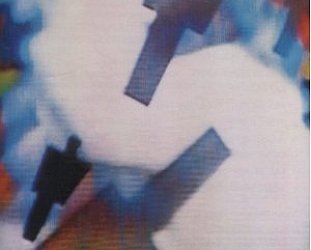
post a comment